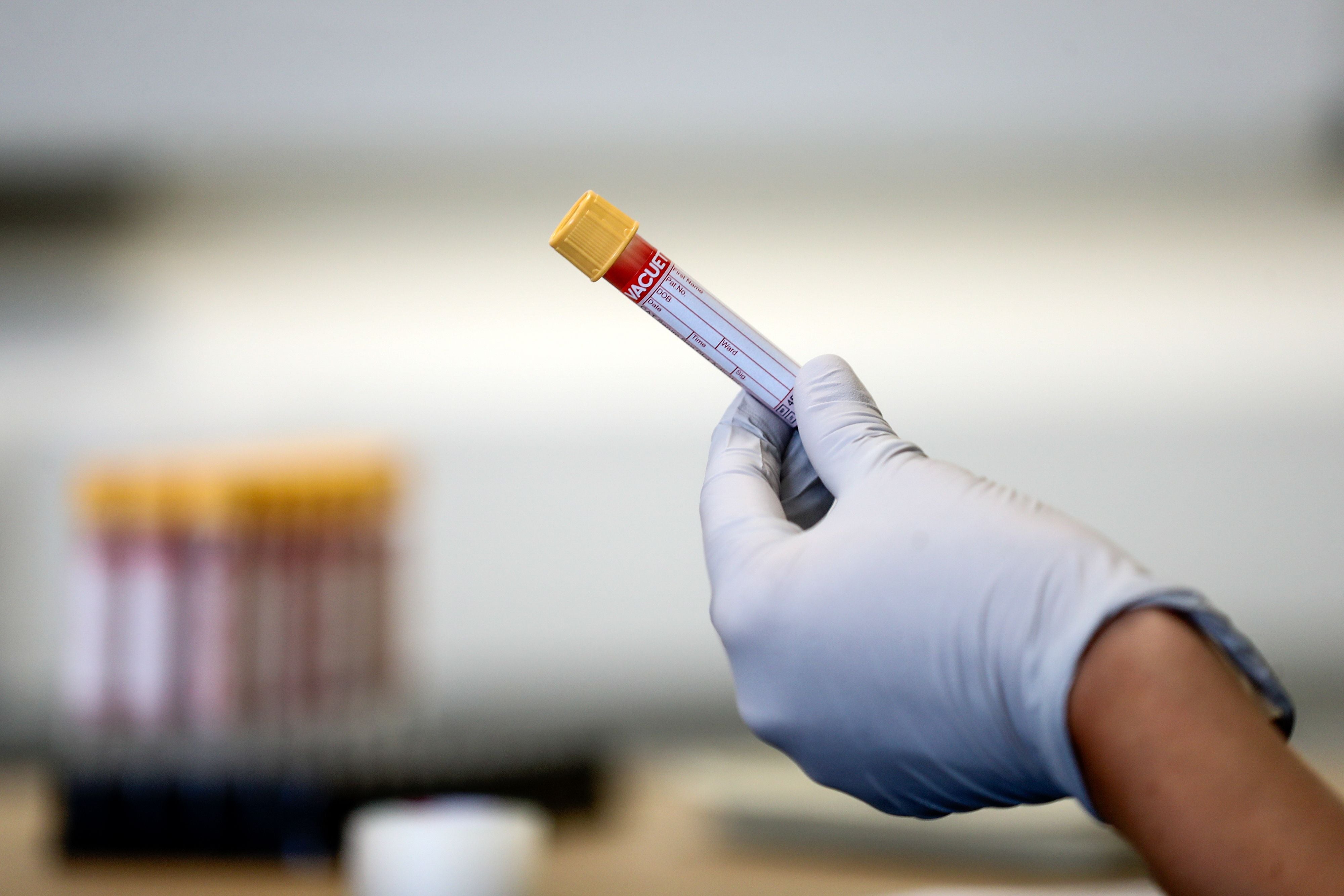‘We must avoid compromising patient care’: Major hospital warns blood tube shortage is now critical
‘We need to have adequate supplies of these tubes resumed, without further delay’

Your support helps us to tell the story
From reproductive rights to climate change to Big Tech, The Independent is on the ground when the story is developing. Whether it's investigating the financials of Elon Musk's pro-Trump PAC or producing our latest documentary, 'The A Word', which shines a light on the American women fighting for reproductive rights, we know how important it is to parse out the facts from the messaging.
At such a critical moment in US history, we need reporters on the ground. Your donation allows us to keep sending journalists to speak to both sides of the story.
The Independent is trusted by Americans across the entire political spectrum. And unlike many other quality news outlets, we choose not to lock Americans out of our reporting and analysis with paywalls. We believe quality journalism should be available to everyone, paid for by those who can afford it.
Your support makes all the difference.Hospitals have told staff the shortage of blood collection tubes hitting the NHS has now reached “critical” levels with a ban on all but urgent blood tests being imposed in some parts of the health service.
A message to staff at Leeds Teaching Hospitals Trust, seen by The Independent, warned staff they must not order blood tests unless it was “absolutely clinically urgent”.
Earlier this month the NHS warned its supply chain for blood collection tubes was being affected by a global shortage of tubes made by medical company Becton Dickinson and stopped some fertility testing, screening for pre-diabetes, allergies and other blood disorders.
In Leeds, the message to hospital staff warned: “The on-going shortage of blood collection tubes is now critical. Your urgent attention is needed to help control our testing and supply.
“Only request a blood test if absolutely clinically urgent. There must be senior clinical oversight around the ordering of tests.”
The trust said it was taking “all possible actions” to reduce the impact of the shortage urging staff to do their bit it said: “We must avoid compromising patient care.”
Elsewhere the Royal United Hospitals Bath Foundation Trust has told GPs in the area they must cut the number of blood tests they are requesting by more than 50 per cent, the Health Service Journal reported.
In a letter seen by the HSJ, the trust said: “We have seen a 6 per cent reduction in the volume of GP tests but we are now having to ask that all non-essential bloods are not requested. We are aiming for more than a 50 per cent reduction.”
This meant stopping tests for all health checks and preventative medicine and monitoring as the trust focuses in urgent patient needs.
NHS England and NHS Supply Chain, which handles equipment ordering for the NHS at a national level, has been trying to control stock levels since the start of the crisis but there is growing concern the shortage could get worse before it improves.
The British Medical Association has said the shortage is a significant concern.
Dr David Wrigley, deputy chair of BMA council, said: “Unless in exceptional circumstances, doctors have been advised to temporarily stop vitamin D testing, as well as screening for pre-diabetes and blood disorders such as raised cholesterol, along with allergy testing and routine infertility testing.
“The BMA has raised the impact this could have on regular tests for NHS Health checks, the monitoring of quality of care, and medication reviews. It would also be unreasonable to ask healthcare staff to simply delay these tests until a later date – not only for the sake of our patients, but also the entire system, which is already tackling an enormous backlog of care.
“While NHS England has provided some guidance for clinicians to follow, no doctor wants the consequence of delayed diagnosis for patients due to these shortages, and they also need to know they are protected from any possible negligence claims. We need to have adequate supplies of these tubes resumed, without further delay, and it is vital, going forward, that processes are put in place to ensure that supply chains of medical equipment are maintained at all times.”
Manufacturer Becton Dickinson alerted the NHS to problems in July and said the increased global demand as well as “UK border challenges” were to blame as well as a shortage of raw materials.
A BD spokesperson said the company was maximising supply of the products and expanding its manufacturing capacity.



Join our commenting forum
Join thought-provoking conversations, follow other Independent readers and see their replies
Comments